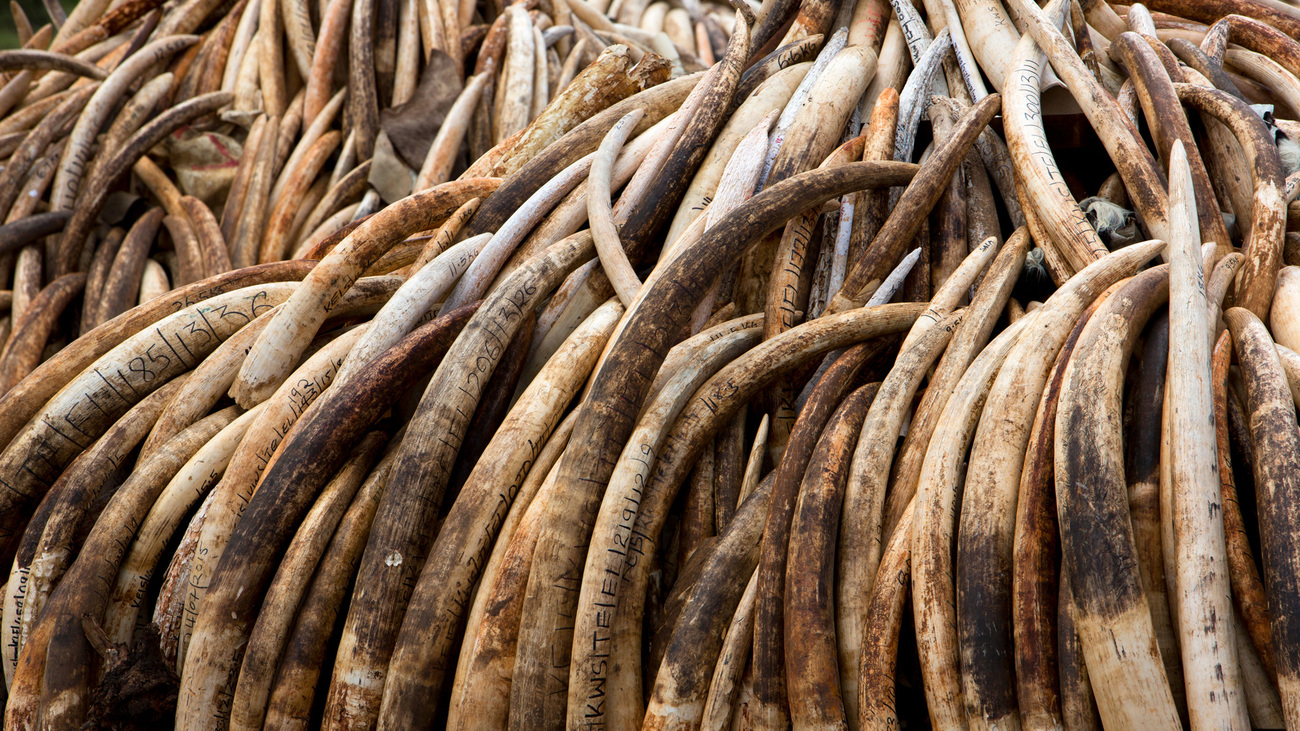Blog
Long’uro: one elephant’s story of immense resilience
Read moreMozambique – Massive bust nets 651 pieces of elephant ivory

The recent interception of a 20-foot container with 651 pieces of elephant ivory at the port of Maputo, Mozambique, is evidence that criminal networks driving the illegal wildlife trade remain a threat to global conservation efforts.
It is critical that a thorough investigation take place, including using forensic science to assist in determining the potential geographic origin of these tusks, which likely extends beyond Mozambique into other elephant range states in southern or East Africa. Close cooperation between governments around the world will be essential to unravel this network. It’s also important to secure official stockpiles of ivory and ensure that there is no leakage from these sources.
The vigilance of SERNIC and the Mozambican Tax Authority is to be applauded. This is a timely reminder that consumer demand for ivory remains in many countries, and the resolve of the global community to secure a viable future for Africa’s elephants must remain strong.
Ending poaching requires the participation of governments, parks, corporations, international organisations, and communities.
Strengthening enforcement is one key way to stop poaching. IFAW works with local communities and wildlife rangers, providing training, mentorship, equipment, and infrastructure to wildlife authorities, border agents, and other law enforcement officials. We also gather and analyse information about criminal networks and support the planning of law enforcement operations by government officials.
In the long term, it’s also necessary to reduce demand for wild animals and their parts. We do so by educating communities about the illegal wildlife trade, the dangers of exotic pets, and how to avoid the products that result from poaching.
Additionally, IFAW works to disrupt wildlife cybercrime. This can only be done with the cooperation of large technology companies and governments. We’re working to catch cybercriminals and make it more difficult for them to trade wildlife and their parts online.
We also work to shape policy surrounding wildlife protection around the world. Many countries may have laws or protected areas in place to protect animals, but they don’t direct enough funds towards enforcing these protections. In addition to working in source countries, we also perform policy work in trafficking hubs and consumer countries to deter the demand for poached animals.
As one root cause of poaching is a need for income, IFAW also works with communities to find alternative, wildlife-friendly livelihoods, and we educate communities on the importance of wildlife and biodiversity.
Lastly, we support those who work on the front lines to combat poaching before it occurs. Wildlife rangers have incredibly dangerous jobs. They do the necessary work to prevent animals from being hunted or caught in snares. IFAW provides support to wildlife rangers to improve their lives, which in turn saves the lives of countless wild animals.
Media contact:
Caroline Gwature
Communications Manager – Wildlife Crime
+31 6 2750 9831
Our work can’t get done without you. Please give what you can to help animals thrive.
Unfortunately, the browser you use is outdated and does not allow you to display the site correctly. Please install any of the modern browsers, for example:
Google Chrome Firefox Safari